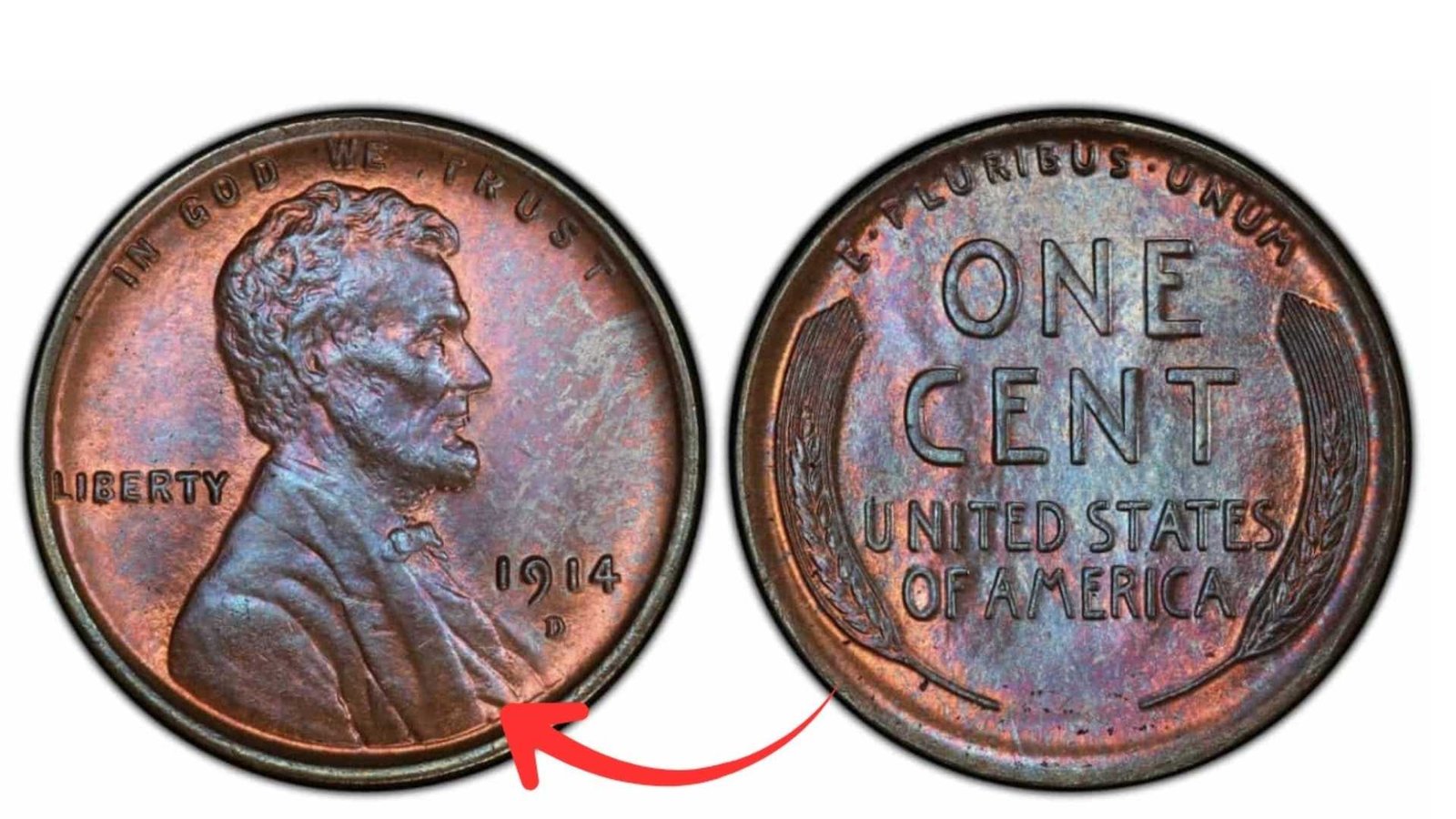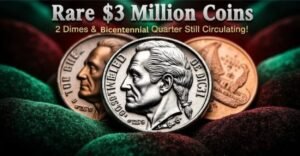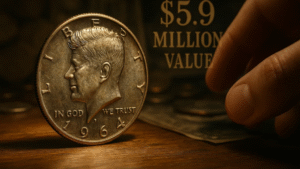Imagine reaching into your pocket, pulling out a penny, and realizing it’s worth more than your car, your home, or even your retirement fund. Sounds impossible, right? Yet, rare pennies worth millions have been found in everyday change. Let’s uncover the secrets behind these elusive treasures and how you might spot one yourself.
What Makes a Penny So Valuable?
A penny becomes valuable when it’s rare, misprinted, or historically significant. These coins often carry minting errors, unusual metals, or low production runs, making them highly desirable to collectors. In short, the scarcer the coin, the higher its value — sometimes skyrocketing into the millions.
A Brief History of Rare Pennies
The US Mint began producing pennies in 1793, and over the centuries, various designs and compositions emerged — from copper to steel. During wartime, metal shortages and minting experiments led to unexpected variants. Some were released by accident, and those slips became collector goldmines.
Top 5 Valuable Pennies Still in Circulation
1. 1943 Copper Wheat Penny
During World War II, the US Mint made pennies from steel to conserve copper. However, a few copper planchets mistakenly got used. These rare 1943 Copper Pennies can fetch $100,000 to over $1 million.
Tip: If your 1943 penny sticks to a magnet, it’s steel. If it doesn’t — you may be holding a fortune.
2. 1955 Doubled Die Obverse Lincoln Cent
This iconic error coin shows strong doubling on “Liberty” and “In God We Trust.” Only about 20,000 pieces exist, making it a prized collectible. A high-grade example can bring $15,000–$100,000.
Watch for: A clear, bold double image, especially on the text.
3. 1969-S Doubled Die Penny
Similar to the 1955 error, this San Francisco mint penny has dramatic doubling. The difference? Fewer are known, making it even rarer. Top-graded coins can command $50,000–$200,000 at auction.
Fact: The Secret Service once mistook them for counterfeits due to the unusual doubling!
4. 1974 Aluminum Cent
A prototype penny made of aluminum to save on production costs. Only a few were struck, and most were recalled — but some escaped. If you ever find a lightweight, silvery penny, it could be worth over $250,000.
5. 1982-D Small Date Copper Penny
1982 saw a switch from copper to zinc, but a few copper planchets were mistakenly used at the Denver Mint. These hybrids are nearly impossible to spot — except with a scale. If your 1982-D penny weighs 3.1 grams, it could be worth $10,000–$20,000.
Summary of Valuable Pennies
| Coin Name | Year | Mint Mark | Key Feature | Estimated Value |
|---|---|---|---|---|
| Copper Wheat Penny | 1943 | No Mint/S | Wrong metal (copper) | $100,000 – $1M+ |
| Doubled Die Lincoln Cent | 1955 | P | Doubling on lettering | $15,000 – $100,000 |
| Doubled Die Lincoln Cent | 1969 | S | Extreme doubling | $50,000 – $200,000 |
| Aluminum Prototype Cent | 1974 | P | Aluminum composition | $250,000+ |
| Small Date Copper Cent | 1982 | D | Copper weight 3.1g | $10,000 – $20,000 |
Quick Collector’s Checklist
| Step | What to Check | Tools Needed |
|---|---|---|
| Check Year | Focus on 1943, 1955, 1969, 1974, 1982 | Magnifying glass |
| Look for Errors | Doubling, odd metal, or mintmarks | Coin loupe |
| Weigh the Coin | Copper = 3.1g, Zinc = 2.5g | Digital scale |
| Verify Authenticity | Get certified by PCGS or NGC | Professional grading |
Why These Pennies Still Matter
In today’s world of digital currency, these valuable pennies remind us of America’s rich minting history. They bridge the gap between past and present — turning everyday pocket change into hidden treasures that can rewrite your financial story.
Expert Tips for Spotting Rare Pennies
- Inspect every penny — especially older Wheat Cents.
- Use a scale to check weight for composition changes.
- Magnify lettering for doubling or unusual mint marks.
- Consult online communities like CoinTalk or Reddit’s r/coins for verification.
- Authenticate professionally before selling.
FAQs
Q: Are these pennies still found in circulation?
A: Yes, though extremely rare, some have resurfaced in rolls or estate finds.
Q: Can I clean my penny to make it look new?
A: No! Cleaning can destroy its value — always keep coins in original condition.
Q: Where should I sell a valuable penny?
A: Trusted auction houses, certified coin dealers, or online platforms like Heritage Auctions.
Conclusion: Don’t Overlook the Little Things
The next time you spot a shiny penny, take a closer look. From the 1943 Copper Wheat Cent to the 1982-D Small Date Copper, these coins prove fortune can hide in plain sight. Keep your eyes sharp, your magnet ready, and your scale handy — because your next penny could be worth millions.




